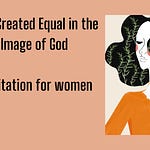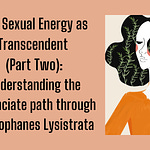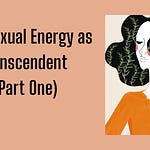Matriarchies are true gender-egalitarian societies; this applies to the social contribution of both sexes - and even though women are at the center, this principle governs the social functioning and freedom of both sexes. Matriarchal societies should emphatically not be regarded as mirror images of patriarchal ones - with dominating women instead of patriarchy’s dominating men - as they have never needed patriarchy’s hierarchical structures.
Evidence found of early cults revealed that before female priesthoods were subsumed under patriarchal pantheons in mainland Greece, various female deities of the ancient Mediterranean world like Artemis (huntress), Athena (‘malelike’ warrior and craftsman), and Hera (wife) where “pure parthenogenetic self-generating, virgin creatixes who stood as a primordial creative force and who required no male partner to produce the cosmos, earth, life, matter and even other gods out of her essence”. They expressed, in other words, their female human condition independently and to its fullest.
To borrow from Simone de Beauvoir and her infamous quote in The Second Sex: “One is not born, but rather becomes, a woman” as a result, of sociological background and embodied meanings one grows into.
In the same vein, “One is not born, but rather becomes a virgin” as a result, of sincere spiritual aspiration and feminist theological embodied meanings, one can reclaim their divine nature and birth right. This way, the divine is no longer the unknown Other, but we embody the Great Goddess and her qualities as One Being.
Knowledge of this woman-led parthenogentic path is highlighted The Apocalypse of Adam, an apocalyptic text discovered amongst the papyri at Nag Hammadi in Upper Egypt in 1945, which is part of the Gnostic Gospel’s, and dated to have been written around the first and second centuries AD. The testament imparts “revelation of the esoteric mysteries and the gnosis or knowledge needed to thwart the archontic powers and return to God” (Robinson, 1977, p.134).












Share this post